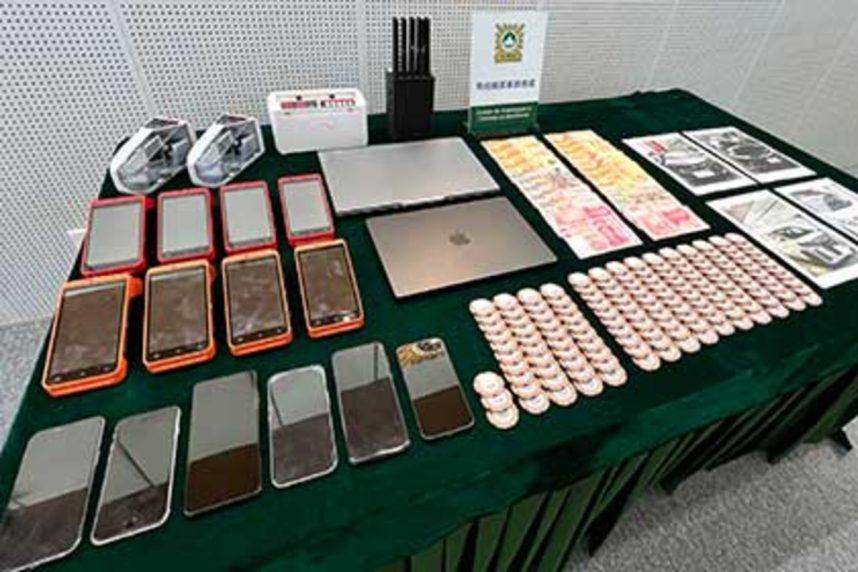Macau Money Exchange Ring Busted, Police Say Millions Laundered Illegally
Posted on: August 7, 2025, 12:52h.
Last updated on: August 7, 2025, 09:45h.
- Police in Macau have busted an alleged unlicensed money exchange
- Mainlanders use such illegal businesses to secretly move money into the casino hub
- A 2024 law made unlicensed currency exchanges illegal
Macau’s Judiciary Police says it recently busted an illegal money exchange that continued its business despite such financial practices being criminalized last year.

The Law to Combat Crimes of Illegal Gambling, enacted last October by the Macau Special Administrative Region Government, made unauthorized currency exchanges illegal. Before the 2024 legal amendment, such exchanges helped mainland gamblers circumvent Macau’s entry laws that limit travelers to bringing in more than the equivalent of about US$5,000 in cash.
With Macau casinos being cash businesses, even mass public players often utilized local money exchanges. The businesses accept wires from the customer and provide them with their stacks of cash upon arrival in the enclave, with a hefty fee for the convenience.
Macau’s law enforcement agency says it recently took down a remaining unauthorized exchange. The police report said the underground business helped facilitate the movement of at least HK$300 million (US$38.2 million). The ringleaders of the illicit enterprise reportedly profited by more than US$1.2 million from the transactions.
Money Movement
China is a communist country, with high-income earners required to share almost half of their monthly income with the People’s Republic. To limit a Chinese resident’s ability to move capital out of the country and from the PRC’s oversight, China has placed strict controls, like limiting a person’s ability to enter Macau or Hong Kong with no more than $5,000 in cash.
The cash condition forces gamblers to make bank transfers with licensed, government-regulated money exchanges. The 2024 law change was thought to negatively impact Macau casinos, but the six gaming giants have prospered year to date, as they’ve successfully navigated an array of regulatory changes.
That includes the disappearance of junkets, the VIP travel organizers that for many years colluded with the casinos to bring high-stakes players to Macau. Mainlanders bought lavish travel packages with private jet service and five-star accommodations. Upon arrival, they were often greeted with an amount of gaming credit nearly matching their trip cost.
With junkets fleeing to more attractive markets where criminal prosecution isn’t at stake, Macau has diversified to a wider base. The billions of dollars in investments have so far paid off, as visitor numbers have nearly returned to prepandemic levels.
Gross gaming revenue through seven months is up 6.5%, with casino win more than $1 billion richer during the period compared with January through July 2024. And with junkets no longer getting a cut of the action, gaming analysts believe the resort firms are in a much stronger position.
Tough Penalties
Macau’s 2024 Law to Combat Crimes of Illegal Gambling escalated penalties for those convicted of such wrongdoings. Violators of the money exchange law or anyone who assists in the transfer of money into Macau without a license now face up to five years in prison.
Police said they arrested four men in the recent unlicensed money exchange operation. All were aged between 30 and 32.
Macau’s Public Prosecution Office will handle the charges against the four individuals. They are accused of running a criminal syndicate and operating an illegal currency exchange for the purpose of gambling.
Last Comment ( 1 )
Was Alex Pariente involved too